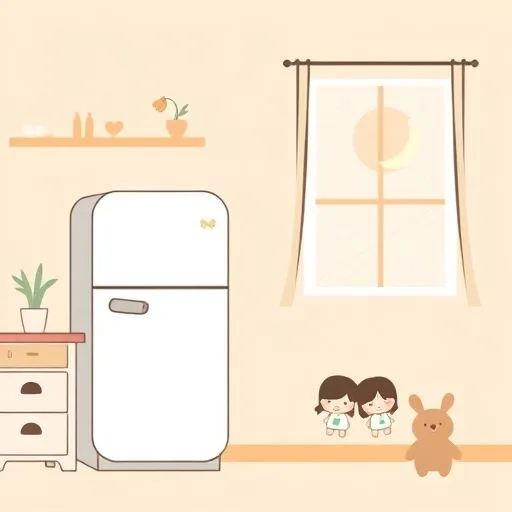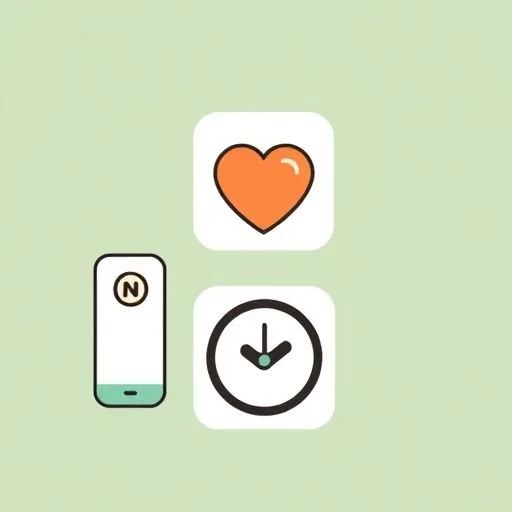
Our house has this rhythm as evening falls. The streetlights filtering through the windows, the dishwasher humming its final cycle, the rustle of school papers being put away. The other night, I saw you standing there. Phone in hand, but eyes fixed on the fridge where the kids’ drawings hang. That hesitation before the phone went into the drawer? That’s what we’re building together. In a society demanding we give our professional selves to our families, we’re choosing something different. We realized something profound – AI isn’t about the ‘더 빠르게’ (faster). It’s about the ‘더 정성껏’ (more heartfelt).
The Weight of Our Divided Attention

We’ve all felt this, haven’t we? We’re Korean parents – masters of balancing work and family. But last week, when our daughter tugged at your sleeve and asked, ‘Eomma, did you see my new picture?’ I noticed that familiar flicker in your eyes. The ones that start scanning the room. We’re all trying to master this balancing act, right?
The McKinsey study on automation’s potential is really about how often we’re able to say, ‘Yes, I’m seeing it now’ with the fullness of our attention.
This isn’t about efficiency. It’s about freeing the space between our breaths. That moment when work and family pull at the same soul, we’re learning to let our children’s voices be heard without the hum of the digital world in competition.
AI as a Korean Family’s Gentle Conscience

At our son’s recital last month, I saw your hand resting on your phone. Not reaching for it. The report from the Harvard Business School researchers calls it ‘engagement’. But I think we’ve known it’s deeper. In Korean families, we call it ‘jeong’ (정) – the bond that grows when attention is fully given.
When you let the AI handle scheduling, you’re not just outsourcing. You’re teaching it something. It’s almost like the tech is developing its own nunchi – you know, that sixth sense for when to pause the emails and just be present. Isn’t that something? The way it quietly reminds, ‘The kids’ soccer practice is in 15 minutes’ – it’s not replacing our parenting. It’s becoming our conscience. It whispers that the family’s needs are the priority.
Subtle Shields for the Quiet Moments

Here’s how we’re shaping this together:
Take how the AI automatically transcribes the kids’ bedtime stories to share with the grandparents in Jeonju – it’s not just convenience. It’s preserving the ‘jeong’ (정) that connects generations.
And then there’s the meal planning app that doesn’t just suggest recipes. It learns to notice when our calendar is full of meetings, automatically suggesting the quick dinners that buy us time for family walks.
Plus, there’s the ‘right now’ filter – the productivity tool that knows when to mute notifications. Not because it’s efficient, but because it knows that when our daughter’s doll is in the middle of an important conversation, we need to be present as the audience.
This isn’t about technology raising our children for us. It’s about creating space for the Korean parenting values we’ve always held dear – the quiet strength of ‘maum (마음)’. The heart-to-heart attention that’s the foundation of it all.
The Gift of Being Fully Present

As a recent Android Police article highlighted, these AI tools are changing how we show up. What Stanford calls digital burnout, we call it the quiet moments we’ve reclaimed. The other night, when you told the story about your grandmother’s kimchi with the same full attention you gave to your leadership presentation, I saw the shift.
The real gift is in the way we can now answer, ‘Are you really listening?’ with an honest ‘Yes, I’m here with you.’
The AI isn’t about being a better parent. It’s about guarding the moments that make us human.
That evening, when you put the phone in the drawer, I saw something else. The Korean family’s strength is in our resolve. But now, we’re learning to untangle our attention to build something deeper than just endurance.
In those quiet moments when the kids are asleep, I see the change. The phone is still here. It just isn’t in charge. And the AI becomes our silent partner in the Korean tradition we hold dear. Protecting the ‘maum (마음)’ – the heart and mind we give to our children.
